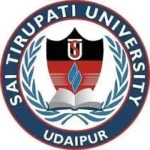Sai Tirupati University is committed to preserving and promoting India’s rich intellectual heritage by meaningfully integrating the Indian Knowledge System (IKS) into its academic, research, and healthcare framework. Recognizing the timeless value of traditional disciplines such as Ayurveda, Yoga, Sanskrit, classical health practices, ancient diagnostics, and holistic healing, the university has undertaken focused efforts to align IKS with modern education and healthcare delivery.
The integration is implemented through interdisciplinary teaching modules, faculty-led research, digitization of classical texts, and student engagement initiatives in alignment with the vision of the National Education Policy (NEP) 2020.
Objectives of IKS Initiatives
- ▪ To preserve, document, and promote India’s ancient scientific and medical knowledge.
- ▪ To facilitate meaningful convergence of traditional and modern knowledge systems in healthcare and education.
- ▪ To encourage interdisciplinary research and innovation using IKS principles.
- ▪ To develop an appreciation for India’s cultural and intellectual heritage among students and faculty.
- ▪ To align with national priorities in building an Atmanirbhar Bharat through indigenous knowledge and practices.
Key Activities
- ▪ Introduction of elective courses and modules in Ayurveda, Yoga Therapy, Sanskrit terminology in medicine, and Indian philosophy.
- ▪ Digitization of ancient manuscripts such as Charaka Samhita, Sushruta Samhita, and traditional pharmacopeias.
- ▪ Collaboration with IKS Division of MoE, TKDL (CSIR), and local Ayurvedic institutions for joint activities.
- ▪ Conduct of national seminars, webinars, and workshops on topics like Ayurvedic nutrition, holistic diagnostics, and wellness traditions.
- ▪ Organizing heritage walks, cultural storytelling, and knowledge-sharing forums led by traditional practitioners and subject experts.
- ▪ Integration of IKS topics in student research projects and clinical internships wherever applicable.
- ▪ Capacity-building through faculty development programmes (FDPs) and orientation sessions on IKS pedagogy and research.
- ▪ Promotion of Yoga and Meditation through structured health and wellness programs on campus.
Outcomes
- ▪ Increased awareness and participation among students and faculty in IKS-driven education and research.
- ▪ Enhanced interdisciplinary research output combining traditional and modern health sciences.
- ▪ Preservation of traditional medical knowledge through digitization and scholarly interpretation.
- ▪ Development of elective course content based on IKS for use across multiple programs.
- ▪ Strengthening of cultural identity and holistic perspectives in professional healthcare education.
- ▪ Establishment of a foundation for future collaboration with national bodies like IKS Division (MoE), NCISM, and CSIR–TKDL.
| Sr. No. | Year | Name of the Event | Date | Link |
| 1 | 2024-25 | Mental Health: An ignored aspect of well-being | 05.09.2024 | |
| 2 | 2024-25 | “Ek Ped Maa Ke Naam” Awareness Program | 17.09.2024 | |
| 3 | 2024-25 | Navratri Celebration | 11.10.2024 | |
| 4 | 2024-25 | Water Conservation & Deaddiction- By P.C. Jain | 21.11.2024 | |
| 5 | 2024-25 | Bhartiya Bhasha Utsav Awareness Program | 11.12.2024 | |
| 6 | 2024-25 | Fit India Hit India Week: Yoga Practice Session to Promote Fitness | 21.12.2024 | |
| 7 | 2024-25 | Importance of Meditation & Stress Free Exam Preparation by Raj Yogini BK Rima Didi | 27.01.2025 | |
| 8 | 2024-25 | International Yoga Day | 21.06.2025 | |
| 9 | 2024-25 |

